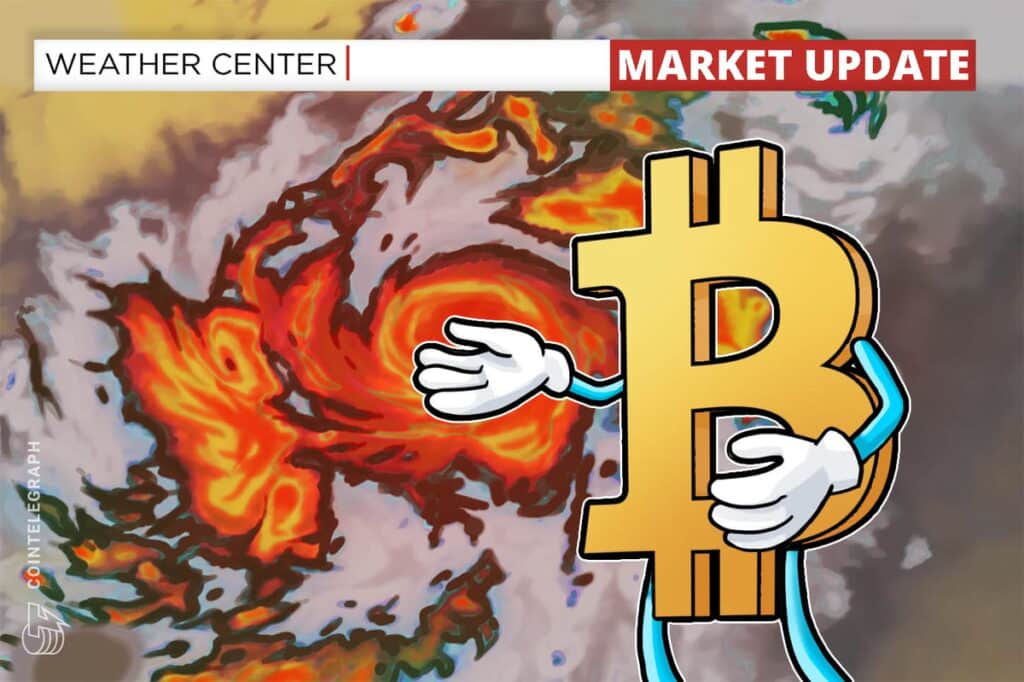Bitcoin falls below $60k as investors fear global economic slowdown

The price of Bitcoin (BTC) experienced a 5% increase between August 13 and August 14, reaching $61,791, before quickly reversing all that movement, falling to $58,914 in less than two hours. The sudden drop came after the United States reported inflation that slightly fell short of analysts' estimates. The initial price increase was driven by significant announcements regarding holdings in Bitcoin exchange-traded funds (ETFs) and microstrategies (MSRLs), but macroeconomic conditions became decisive on August 14.
Heavy hitters adding to bitcoin ETF and micro strategy positions have had some impact.
Goldman Sachs, a leading global financial institution, has disclosed in its 13-F filing a new position in Bitcoin ETF holdings totaling $418 million. It reflects the position as of June 30. The placement included a number of vendors, including BlackRock, Fidelity, Invesco and Greyscale. While it's unclear whether these investments were made by outside fund managers or Goldman's internal asset management team, it's a significant milestone as the firm oversees $2.81 trillion in assets under management.
Not all asset managers accept such investments. According to CNBC, JPMorgan, Bank of America and Wells Fargo continue to restrict their financial advisor positions from recommending Bitcoin ETFs. Meanwhile, Morgan Stanley, one of the world's largest wealth management firms, approved the distribution and sale of Bitcoin ETFs through its 15,000 financial advisors as of August 7. to follow.
Additionally, the 13-F filings released on August 14th brought significant positions in shares of MicroStrategy (MSTR), bringing additional attention to Bitcoin. Norges Bank, the central bank of Norway, reported holding 1,123,930 shares worth $152.2 million, while Swiss National Bank disclosed 466,000 shares worth $63.1 million. Also announced that South Korea National Pension Service bought 245,000 shares worth $33.2 million.
The key to Bitcoin's continued decline appears to be a report from the US Department of Labor, which showed a 2.9% increase in the Consumer Price Index (CPI) over the past 12 months, the slowest increase since March 2021. In particular, accommodation costs contributed. About 90% of the overall measure strengthens investors' confidence that the US Federal Reserve (Fed) will cut interest rates in 2024.
The threat of a global recession is driving investors away from Bitcoin
An environment of accommodative monetary policy generally benefits the stock market by reducing financing costs for companies and reducing exposure to fixed income investments. While Bitcoin doesn't directly compete with the S&P 500, a significant portion of its interest comes from its role as a hedge, especially during periods of out-of-control inflation. Therefore, recent macroeconomic trends have not been favorable for Bitcoin's performance.
Related: 45% of Bitcoin Supply Has Not Moved in 6 Months – Research
However, it would be easy to attribute Bitcoin's price weakness to a small surprise in the US CPI data. In particular, the last time Bitcoin hit $62,000 was in 2018. It was on August 2. In the year The main reason for the correction from the $70,000 peak correction on July 29 was the stock market crash, which was triggered by the Bank of Japan's decision to raise interest rates. The move boosted risk aversion among investors, causing U.S. 5-year Treasury yields to close at their lowest level since May 2023 on Aug. 5.
Therefore, Bitcoin's negative performance on August 14 seems to reflect investors' concerns about the possibility of a global economic slowdown. To provide context, gold, traditionally considered a hedge, is trading less than 2% from its all-time high. This contrasts with the S&P 500 index's recent nine-day gain of 5.7%, which can be misleading, as it mostly reflects the short-term effects of temporary US Fed actions.
One silver lining is that if the global economy fails to keep pace regardless of inflation, Bitcoin could be a valuable asset. For example, during a recession, typically the demand for credit is reduced and consumer spending is low, leading to inflation. Such a scenario, known as stagflation, could present a serious concern for Bitcoin's bullish potential in 2025, although it is still too early to gauge the likelihood of this outcome.
This article does not contain investment advice or recommendations. Every investment and business activity involves risk, and readers should do their own research when making a decision.













